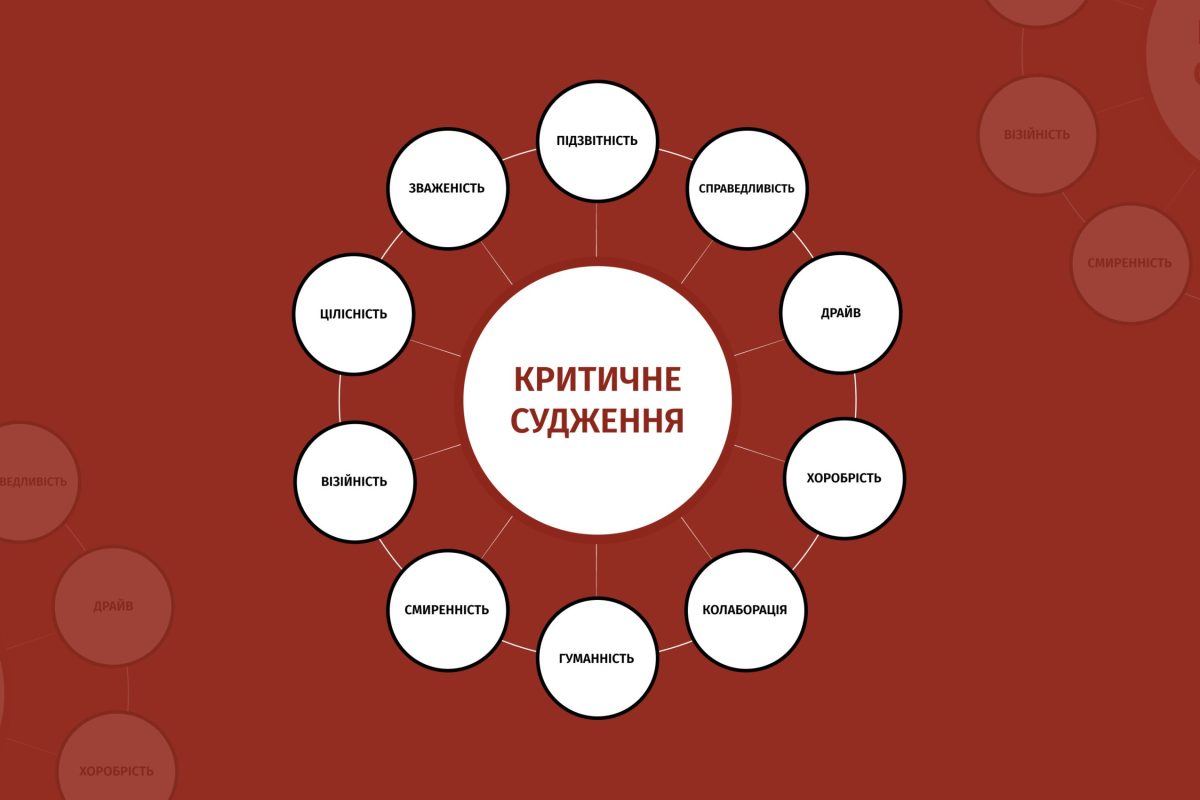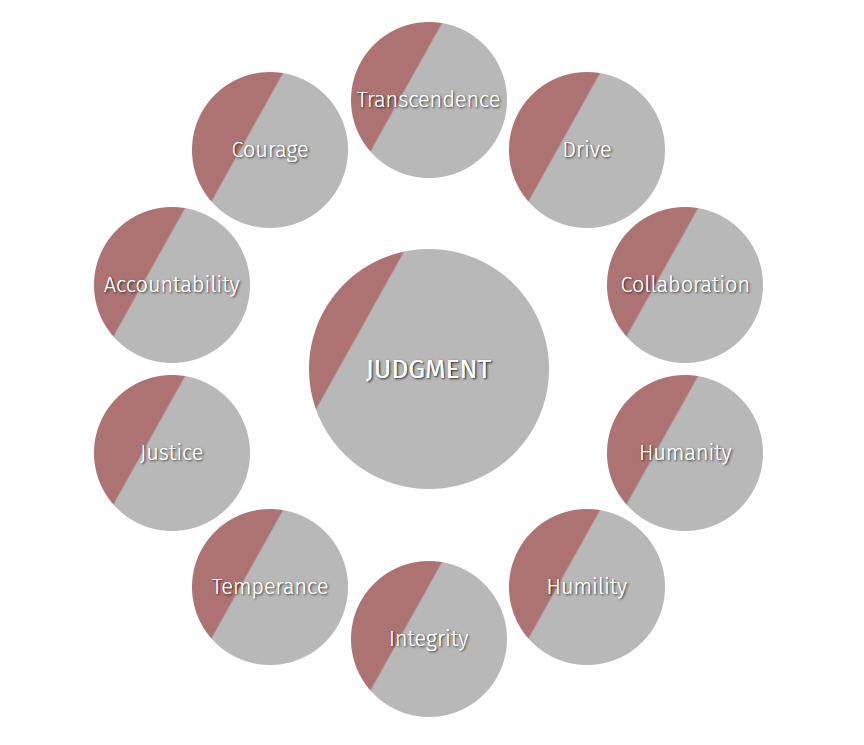
Conception “Leadership based on character”: which dimensions leaders need today?
Leadership is one of the most controversial topics not only in ukrainian community, but in foreign countries as well. We often talk about leadership relating it to political situation: who heads the country, what actions has been done by a peculiar politic to maintain his/her leadership, how a selection process of the candidates for the key positions in the country proceeds and whether irreversible changes will take place, if the right people will chair the right positions. We talk about the leadership in business and management context: how to build an effective team, how a manager should behave in a critical situations and what lessons could be withdrawn from the management style of others, super effective ones. But very rarely we talk about leadership in light of ethics, morality, ideology. We want to deviate from the discussion of who is the leader and what competencies he / she possesses and return to the discussion of what the leader should be.
Center for Leadership of UCU in its work applies a conception «Leadership based on character», that was developed by Ian O. Ihnatowycz Institute for Leadership of Ivey Business School. According to the conception, a leader, regardless of the spheres of his/her activity – military, business, non-profit or state sector – should possess a certain list of dimensions, namely justice, courage, humanity, transcendence (11 in total).

When talking about the leadership, manyfold of experts put emphasis on improving competencies and skills, but at the same time they neglect to flourish character virtues, which indeed form a true leader. Researches from Ivey Business persuasively claim that people can develop their leadership dimensions and that a leadership is not an attribute we are born with, but the one that we can develop and nurture innerly. We believe that everyone, regardless of titles and positions, potentially can be a leader. Leadership can be learned. This is mentioned by the CEO of Ian O. Ihnatowycz Institute for Leadership Gerard Seijts on Economic Forum in Davos, who stated that “in leadership 24% are innate qualities, and 76% is what can be learned, improved”.
Corresponding to the conception, which is used by Center for Leadership of UCU, leader’s character has 11 dimensions:
- Drive is essential for leaders to set high goals for themselves and to move in direction of its accomplishment. Leaders that possess this virtue show perseverance in achieving goals, motivate others, demonstrate a high initiativeness.
- Collaboration is important for leader to build an effective team and cooperate with others.
- Humility is a capability of considering other people’s interests, empathize, compassion and ability to forgive.
- Humanity means a high level of self-awareness, ability to reflect, a sense of gratitude to those, who help leaders achieve their goals and successes.
- Integrity depicts leader’s correspondence with such characteristics as authenticity, sincerity, consistency. Leader, who possesses this dimension, says what he/she thinks and does what he/she says. Decisions, that are made by such a leader, are consistent with his or her vital and professional principles.
- Courage means readiness to take risks, make changes, testify against wrong doings and actions.
- Temperance allows leaders to keep calm when others start to panic, prevents from making decisions that would have short term perspective, but could evoke difficulties and problems in a long run.
- Accountability envisions a sense of personal responsibility regarding leaders’ position and acceptance of consequences of their own actions. It is also expected to respect those, with whom leader works, and to be ready to report to them about personal decisions made.
- Transcendence is a dimension that enables leaders to see “a whole picture” and make far-sighted decisions. It includes focusing on future perspectives and doing that kind of work that is correct for the organization, and not the one that brings short-term rapid results.
- Justice means a sense of proportionality in assigning rewards, recognition and sanctions among the team, and also a sense of responsibility in increasing and developing environment, in which a leader works.
- Judgement is a key element in a leader based on character conception. And exactly this virtue determines how a leader will disclose all other character elements on practice by decision making. This dimension means that a leader is insightful, decisive, pragmatic, critical in his/her judgements.
You can learn about how to combine and develop all these leadership dimensions at the Center for Leadership of UCU and Lviv Business School of UCU (LvBS) educational programs.